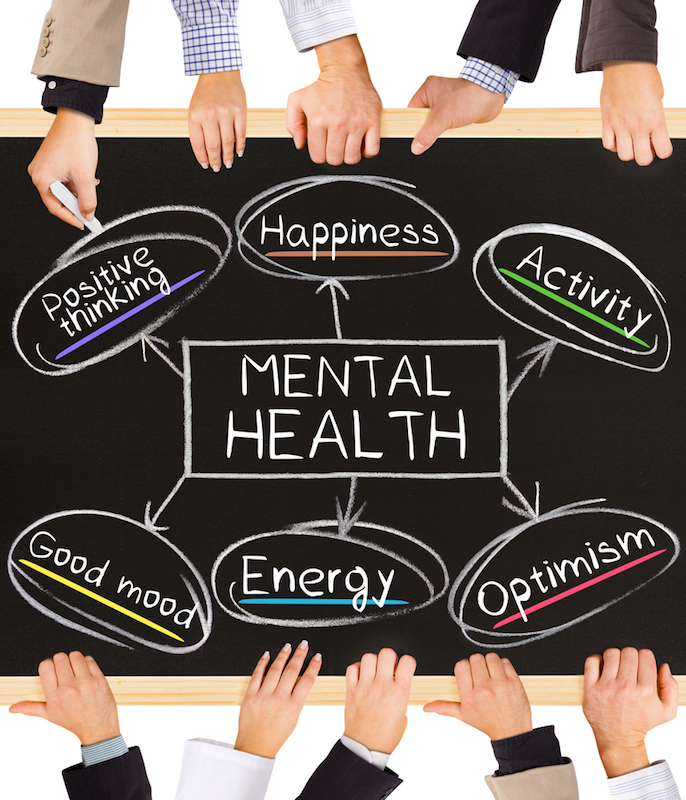Plant-medicine making inroads in mental health
Branded Content by Cosmic Press
Since the pandemic, the Western world’s population has felt more isolated than ever, with already 13%+ of people from the USA taking some form of antidepressant medication. The lockdown of the pandemic has only exacerbated this with the increased use of SSRIs, alcohol, and street drugs.
There are two pandemics currently working their way through Western Culture, Covid and mental health. Drug and alcohol addiction are also mental health issues at their core. Poor mental health finds its way through every part of our institutions, economy, and family life.
Plant medicine and psychedelic medicine data are coming into focus and becoming clear that many people suffering from depression, anxiety, and PTSD can benefit from well-structured experiences with these tools.
What’s happening now
A revolution is sweeping mental health. Not since President Nixon declared war on drugs have researchers and traditional practitioners been able to share the results. The early data shows that plant-based therapy and psychedelic medicine have a very high efficacy rate.
Results published in the New England Medical Journal show that using high dose psilocybin mushrooms for depression therapy, 57% of the subjects did not have depression symptoms after six weeks. It should be noted that SSRI therapy is a maintenance drug, whereas psilocybin therapy is typically done in one to three doses.
The right to use psychedelic medicine is currently navigating through the legislature, with places like Oregon, Washington DC, and Boulder, CO decriminalizing psychedelic plant-based drugs. California legislation in the works.
The tools
Ayahuasca
Many of the tools in this psychedelic mental health revolution come directly from nature. Among indigenous practitioners, four plants are well known for their healing power, ayahuasca, peyote, san pedro, and iboga. Mushrooms are also widely used but are not plants themselves.
Ayahuasca is in the middle of the mental health renaissance, with many retreat centers popping up worldwide to cater to those seeking depression, anxiety, and trauma treatment. Ayahuasca assisted therapy is showing no signs of slowing down in the West. Slowly ayahuasca is becoming more mainstream and becoming an option for people who don’t necessarily want to travel to the middle of the Amazon jungle to partake.
The Global Ayahuasca project studied 7,785 people suffering from depression over a period from 2017-2020. 93% of the subjects reported improvements in their depression.
Iboga and Ibogaine
Tabernanthe Iboga is a shrub from West-Central Africa, mainly in Gabon, Cameroon, and the Congo. It is used in traditional initiations into a spiritual practice called Bwiti.
Ibogaine is becoming more widely known as a tool to stop the withdrawal effects of opiates. In more recent accounts and studies, it is also showing promise for depression, anxiety, and PTSD treatment.
Bloomberg Quicktakes recently did a video on iboga and ibogaine and their potential benefits on opiate crises and formulating new medicines out of iboga alkaloids.
Levi Barker, an Iboga provider at an iboga treatment center in Costa Rica, shared some first-hand information. “At our retreat center, about 85% of the people coming to work with iboga suffer from some problem with anxiety and depression. Out of those, 25%-30% have to stop taking SSRI medication before coming. SSRIs are not to be taken with many plant medicine-based treatments. We have found that after six months, 76% of those have not gone back to pharmaceutical-based medications like SSRIs and benzodiazepines.”
Psychedelic medicine starts up like Mindcure. Gilgamesh Pharmaceuticals are studying ways to modify the iboga plant and its primary alkaloid ibogaine to make new drugs with depression relieving properties while removing the psychedelic experience from the equation. It remains to be seen how these new classes of medications will fare against the natural alternative.
Psilocybin
Psilocybin in a therapeutic context is growing at a rapid rate, even though ingesting psilocybin is prohibited in most of the world. According to the New England Journal of Medicine, psilocybin-assisted therapy is as effective as SSRI medication.
Compass Pathways, led by Peter Thiel of the Paypal Mafia, is taking big bets in the future of psilocybin therapy. Compass Pathways has a patented synthetic psilocybin COMP 360 and is currently testing it against treatment-resistant depression.
While much of the data is still being accumulated, the word on the ground is that many people benefit from psilocybin therapy. If you don’t know anyone yet that has had a profound helpful experience with magic mushrooms that contain psilocybin, you probably will soon.
The Business
With favorable efficacy rates, big pharma has become interested. All the major players are coming in or have their eyes on implementing plant-based psychedelics and using their alkaloids and compounds to create new medicines. Big pharma sees it as a problem that you can’t patent a plant.
The mental health revolution with psychedelic-based therapies is here to stay. With big pharma coming in and the opportunity to make huge profits, we can expect that those in Congress will be listening. We need to ask ourselves: Can the typical therapeutic model be molded to work within the system, or does the system need to be turned on its head and provided by the same indigenous people working with these medicines since the beginning?
Scores of people have stories of coming back from the Amazon jungle, Costa Rica, etc., to experience these medicines in a traditional context with life-changing results. A Youtube search shows and endless testimonials of people getting their life back with these substances. These practitioners don’t run clinical trials or typically report data to the Western medical world.
Whether it is in the doctor’s room or a jungle somewhere, psychedelics create a new mental health revolution.
Branded content furnished by our promotional partners. The Daily Sundial editorial staff is not involved in its production. Content does not reflect the views or opinions of the editorial staff.










